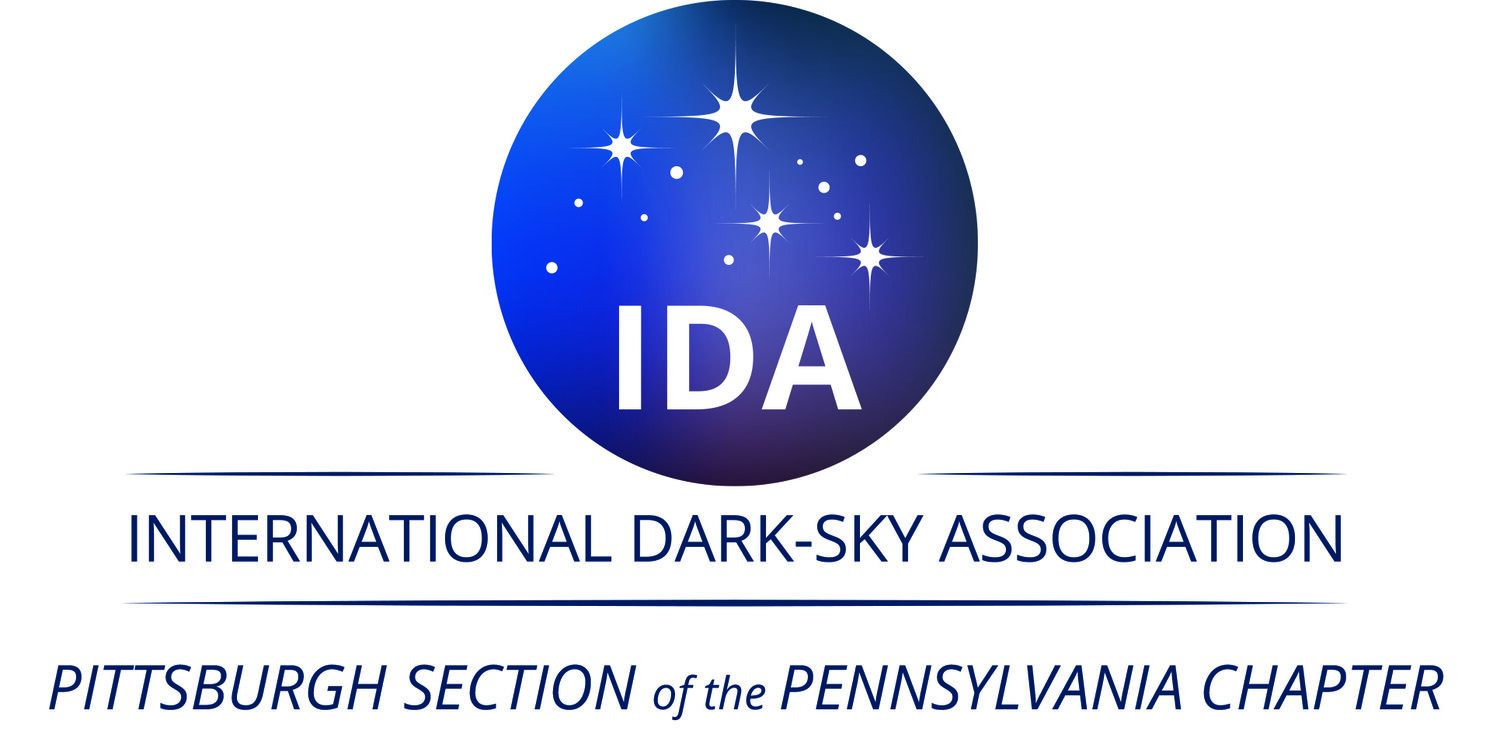Interview with Dr. Matthew Walker
A Sky Full of Stars, Meteors . . . and Light Pollution
by Sophie McGrady
Until just recently, when the thought of light pollution came to mind, I did not associate it with much more than fading stars. I didn’t quite grasp how it may affect society in the future. However, after talking with Dr. Matthew Walker, a professor of astrophysics and cosmology at Carnegie Mellon University, I was able to recognize that light pollution could have negative effects on future generations. I realized that some of the wonderful night sky experiences shared with me by Dr. Walker may not be available to future generations if society continues to unnecessarily light up the night sky.
In addition to being a professor, Dr. Walker is an observational astronomer, so, when asked about his experiences of looking up at the night sky, Dr. Walker was quick to share a number of astounding memories. One such experience was tied to the brightness of the Milky Way. “It’s quite a beautiful thing to see the structure of the Milky Way on a very dark night.” When walking down the side of a mountain in Chile on a moonless night, Dr. Walker found that he was able to see his shadow as a result of the light being cast down by the Milky Way.
I realized that some of the wonderful night sky experiences shared with me by Dr. Walker may not be available to future generations if society continues to unnecessarily light up the night sky.
-Sophie McGrady
A different story revealed not only a beautiful night sky object, but also what I interpreted as the sky’s sense of humor. When on a trip to Spain, Dr. Walker and a colleague visited what he called “the equivalent of a national park” after curfew to camp out under the stars. At one point, Dr. Walker and his colleague were alarmed by what seemed to be the flashing lights of police coming to reprimand the two for being out past curfew. White and red lights filled the sky, mimicking the lights of approaching police vehicles. However, Dr. Walker was surprised to find that the source of such light was not coming from law enforcement, but rather a meteor shining in the sky. While the two colleagues had visited the park to simply camp under the stars, the sky had other plans to inject a little humor into the night by briefly alarming the pair with illusions of authority figures.
When hearing these amazing stories, I found myself yearning for experiences similar to those described by Dr. Walker. While I wish I could say that I have already experienced such marvelous astronomical events, I am excited by the future possibilities that lay in front of me. However, with such excitement comes a more complete understanding of the light pollution problem. While I have not yet seen the Milky Way in person or had run-ins with the cosmic police force, I know that I could travel to another part of the world and experience wonderful night sky events. However, this may not be true for future generations. Such generations may not have their desire to see the night sky become a reality if the sky continues to be polluted by light.
Additionally, Dr. Walker shared an event that further impressed the problem of light pollution on me. Dr. Walker conducts research at the Las Campanas Observatory in Chile. According to him, the Las Campanas Observatory is “what’s widely regarded as the best socalled natural seeing of any observatory.” However, he stated that about ten years ago, the Chilean government funded the widening of the Pan-American Highway. The lighting of this highway can be seen from the observatory and has been negatively affecting the research of those taking astronomical photographs from the observatory. One of the best places for viewing the night sky is being affected by light pollution. Considering this fact, I think it is the perfect sign for those unaware of the gravity of light pollution to understand the significance of the problem.
When talking to Dr. Walker about light pollution, he shared a valuable sentiment. “As someone who appreciates the night sky I view it as a kind of birthright that humans have always enjoyed throughout all of humanity . . . and I think it’s just a terrible shame that we are, without thinking about it, degrading the quality of that view for ourselves and for future generations.” Without knowing, we as a society are often putting the night sky at risk. Considering this, I have found it increasingly important to raise awareness about the effects of light pollution so that we can take control of our decisions and combat any unintentional actions with actions of positive resolve and purpose.

